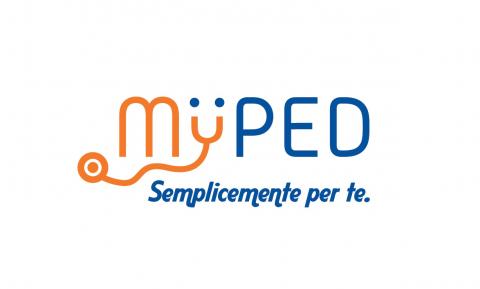Best practices on the phone: the MyPed app

An application aimed to help parents taking care of their children’s health. This is the idea behind MyPed, a mobile app developed by a group of physicians that won our Best practice award for general practitioners. The app, available for both Android and iOS smartphone, combines different tools that parents may use to manage their children’s health. It provides information, news and advices about infectious diseases, first aid, breastfeeding and weaning; it includes a calendar and other utilities that help to keep track of exams, vaccinations and medical appointments; and it offers the chance to directly ask questions to paediatricians.
“The idea of MyPed was born within the Italian Federation of Paediatricians (FIMP)”, explains Luigi Lubrano, one of the paediatricians who realized the app. “We were aware of the increasing number of people who use internet to get health information and we wondered if there was a way to offer them a solid medical support”. The first step taken by the group of paediatricians led by Giovanni Vitali Rosati was a national survey to ask to a sample of families which kind of tool would have been the most adapted to monitor their children’s health. “Based on the response we obtained from the survey, we started to work on the app”, continues Lubrano. “Our target were families with children in their early years, meaning that the app was mainly conceived for parents.”
MyPed allow to keep track of exams and vaccinations through an integrated calendar with alerts. It also provides parents with information and news, most of which comes from public health institutions, epidemiologic centres, scientific papers, but some are also from generalist media. “At the moment, there is a group of voluntary paediatricians who are in charge for the update and control of the news but, in the future, there could be a dedicated editorial staff for this”, explains Lubrano.
Another section of the app is devoted to practical advices on a wide range of topics, from fever to cough, from home safety to nutrition, from infectious diseases to sleep. “It is already possible to ask direct questions that will get an answer as soon as possible”, says Lubrano. “We would like to improve this section through a text-messaging system but we still need to make plans for that”.
Launched in January, MyPed was downloaded about 3,000 times from the App Store (it arrived on Android only at the end of May), and is being promoted through the paediatricians network and in medical congresses. This app noticeably falls within the scope of the ASSET Best practice award for general practitioners, since it both improves the response of local communities or groups of people to deal with outbreaks of infectious diseases and promote immunizations for groups of children or adults for the prevention of diseases.
Winning the ASSET award was thus a great acknowledgement for Luigi Lubrano and his colleagues from FIMP. “We will use the ASSET grant to attend European paediatric conferences, which could also be a good chance to present MyPed to a wider audience, even if the app is in Italian, at the moment”.
